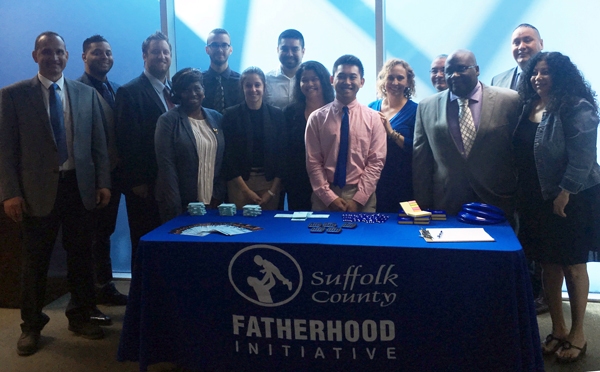|
|
| New FRPN Research Brief and Quality Measures |
Our latest brief, Measures of Father-Child Relationship Quality for Fatherhood Programs, describes how fatherhood programs can measure relationship quality.
To-date, most studies focus exclusively on the amount of father-child contact and involvement when they consider the father-child relationship. FRPN examined the utility of two short measures that focus on father-child closeness and conflict to assess the quality of father-child relationships. The measures are: the Child-Parent Relationship Scale – Short Form developed by Driscoll and Pianta, and the Parent-Child Relationship Scale (PCRS) adapted from Stattin and Kerr. The FRPN brief discusses their strengths and limitations.
|
| FRPN Grantee Spotlight |
Many fatherhood programs struggle to engage and retain participants. Anna Hayward, PhD, MSW, associate professor, Stony Brook University School of Social Work, and Ms. Romarie McCue, director of the Suffolk County Fatherhood Initiative (SCFI) are collaborating on an FRPN-funded randomized control trial to explore whether cell phones and text messages are effective ways to “hook” fathers to participate in program services more wholeheartedly.
As their project begins, Dr. Hayward and Romarie have offered some insight into the challenges and opportunities associated with this type of evaluation research. |
|
Dr. Anna Hayward
What do you hope to learn from your FRPN study?
This study explores the impact of cell phones on engagement and retention in a fatherhood program. Using a randomized experimental design, we will explore the impact of cell phones and text messaging on program participation, engagement and retention. From these findings we hope to help inform the development of future programs using this type of technology.
|
|
What makes evaluation research in the fatherhood field interesting? What do we still need to learn?
While we have a good understanding of the challenges faced by fathers, questions remain about the most effective methods to engage and retain them in services. With a deeper understanding of engagement and retention, we can better learn how to tailor holistic services to fathers and families.
 The SCFI and SBU research teams.
The SCFI and SBU research teams.
|
Ms. Romarie McCue
What does your program hope to learn from its current evaluation with FRPN?
The SCFI fatherhood program has struggled with client retention and engagement in the past. We have tried several strategies to make improvements including front-loading services to create a “hook” and increasing efforts to secure contact information from participants, but it was not enough. We are excited to find out if using cell phones will help increase client engagement and retention in our program.
|
|
|
|
| Update on FRPN Request for Proposals |
FRPN received 95 letters of interest in response to our solicitation for innovative exploratory and descriptive studies as well as studies using RCT or quasi-experimental research designs. Based on reviews by panels of researchers and practitioners, 14 applicants were invited to submit full proposals. It is expected that three to five awards will be announced in mid-December, with the new 18-month projects commencing in January 2017.
Learn more about FRPN funding opportunities here. |
|
| FRPN Webinar on Using Cellphone Technology in Fatherhood Programs and Research |
| A recording of the Oct. 4 FRPN webinar on the use of cellphone technology to engage, provide services to and collect information from hard-to-reach groups is now available on this page of the FRPN website. |
|
|
|
Contact Us to Learn More
FRPN Co-Director Jay Fagan, PhD | Professor, Temple University School of Social Work

© 2016 Fatherhood Research & Practice Network. All rights reserved
The Fatherhood Research and Practice Network is supported by grant #90PR0006 from the Office of Planning, Research and Evaluation, Administration for Children and Families, U.S. Department of Health and Human Services. The contents are solely the responsibility of the Fatherhood Research and Practice Network, Temple University and the Center for Policy Research and do not necessarily represent the official views of the Office of Planning, Research and Evaluation, the Administration for Children and Families or the U.S. Department of Health and Human Services.
 
|
|


